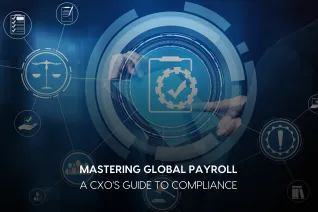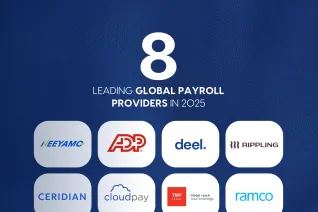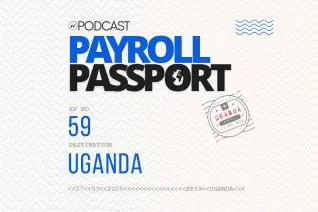Country Spotlight: Payroll in Greece

“It’s all Greek to me,” a phrase commonly used to describe complex things, such as payroll, for instance.
And, unironically enough, one can find the payroll system in Greece to be, well, all Greek to them.
With a whopping GDP of USD 219 billion, Greece is much more than its mythology and has much to offer to the world of work. Here’s a ready reference guide on Greece’s payroll for organizations looking to expand into the country.
Land of The Horea: Social Security
Social Security is a crucial part of payroll in Greece. Both employers and employees in Greece must make social security contributions to the Unified Social Security Fund (EFKA), which covers pensions, health care, unemployment, disability, and other benefits.
The contribution rates vary depending on the type of employment contract, the sector, and the salary level. The employer's contribution rate is 24.74% of the gross salary, plus €20 per year for the EFKA summer campsite programs. The employee's contribution rate is 15.87% of the gross salary. The contributions are calculated monthly and paid by the employer by the end of the following month.
This is governed by Law 4378/2016, enacted in August 2015. This law sets uniform social security and integrates funds into the EFKA.
This is an essential payroll contribution, and it becomes necessary for organizations to be equipped with an efficient payroll system that ensures timely and accurate inputs.
Under Chronos’ purview: Working hours in Greece
The standard working hours in Greece are 40 hours per week or 8 hours per day.
Overtime is limited to 3 hours daily, and employees must not work beyond that. Employees will receive an additional 50% (40%) of their regular pay for each hour of overtime worked, and on holidays, they will receive an extra 100% of their regular pay.
Signed by Sancus: Collective Agreement
Defined under Article 8 of Law 1876/1990, The National General Collective Agreements (EGSSE) define the minimum non-wage working conditions applicable to workers across the country.
Also check out: The Collective Bargaining Agreement of France
Several crucial aspects of employment are defined in EGSSE, including maternity leave, parental leave, sick leave, and basic wage.
Along similar lines, Collective Work Arrangements (SSE) and Arbitration Decisions (DA) are defined under Article 16 of the same law, which are binding agreements between employers and employees who are members of affiliated unions or associations within the same scope by location, sector, or industry.
A Herculean Task: Being on guard for other employment considerations
Since Greece is part of the European Union, employers must also be wary of the employment laws levied by the EU.
While there are laws imposed at a national level, there are also certain laws to heed that are imposed by the EU.
The standard corporate income tax for individuals is 22%, and resident organizations must pay taxes on their global profits as directed by the Greek Civil Code.
However, the European Commission published a proposed directive to introduce a global minimum effective corporate tax rate of 15% for large corporate groups operating in the European Union.
So, for a seamless pay experience, payroll providers must remain compliant, with timely updates, at the national and global levels.
Walk with Athena and Nike by your side
An efficient payroll provider will help businesses navigate through these complexities not only successfully but also strategically.
Organizations need a robust payroll system capable of adapting to the evolving payroll dynamics to maintain data collection and compliance accuracy.
Fortunately, businesses don’t have to look beyond Neeyamo’s Global Payroll solution!
Fueled by a truly global single engine and its native Global Payroll Tech Stack, this solution offers a comprehensive and customizable payroll platform. Balancing cutting-edge technology with stringent compliance standards, the Global Payroll solution guarantees dependable payroll outcomes.
This solution empowers organizations to centralize payroll data, facilitating seamless integration with other platforms. Complete with ancillary modules such as Time, Absence, and Compliance, it simplifies the complexities of regulatory requirements.
Get in touch with the payroll experts today by writing to us at irene.jones@neeyamo.com.
Latest Resources
Stay informed with latest updates
If you're curious and have a thirst for knowledge pertaining to the HR, payroll, and EOR universe, don't miss out on subscribing to our resources.
















